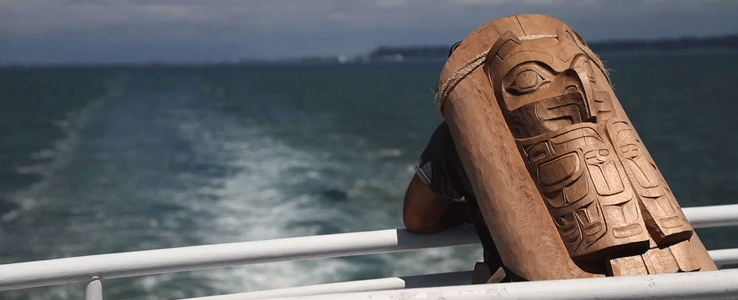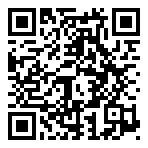
The Indigenous Archives Gathering
Archive/Counter-Archive and imagineNATIVE present
THE INDIGENOUS ARCHIVES GATHERING
October 17 & 18, 2022 | TIFF Bell Lightbox
The Indigenous Archives Gathering brings together Indigenous artists, media specialists, archivists, curators, Knowledge Keepers, Elders, memory workers and scholars from across many different First Nations, Inuit, and Métis communities. During this two-day symposium, vital conversations will be held on the state of Indigenous media art archives in Canada.
For more information, visit us at counterarchive.ca/gathering
TICKETING AND REGISTRATION
Individual panel tickets ($15) and full passes ($50) are now available for sale on the TIFF website.
*Free passes are also available on TIFF’s ticketing page for students and/or those where the above ticket prices would pose a financial barrier.
SPEAKER & PARTICIPATING ARTIST BIOGRAPHIES
Click here to read all of the speaker and artist biographies.
LOCATION
TIFF Bell Lightbox, 350 King St W, Toronto, ON M5V 3X5
SPONSORS:
This event has been made possible via the generous support of the following organizations: Archive/Counter-Archive, the Social Sciences and Humanities Research Council of Canada, the Canada Council for the Arts, the imagineNATIVE Film + Media Arts Festival, York University’s Department of Cinema & Media Arts, the York University Indigenous Scholarly Events and Outreach Activities program, Queen’s University, and the Toronto International Film Festival.
SCHEDULE
*All sessions are open to the general public with the exception of the workshops on Tuesday morning which are Indigenous only (click here for workshop registration form).
Convenor for the Indigenous Archives Gathering, Linda Grussani
MC for the Gathering, Dr. Stacy Allison-Cassin
Day One – Monday, 17 October 2022
*All sessions on Day One are open to the general public and will take place in Cinema 3
9:00 AM–10:00 AM, Registration: Coffee, tea, and visiting/networking. Open to the general public.
10:00 AM–10:30 AM, Morning Opening: Elder Opening, Pauline Shirt. Open to the general public.
10:30 AM–12:00 PM, Opening Keynote – What gets saved? What gets left behind?: This opening keynote presentation by Sherry Farrell-Racette and Marjorie Beaucage, discusses Indigenous peoples/communities and Archives. This exchange will help to set up the framework to be explored at the Gathering. Open to the general public.
12:00 PM–2:00 PM, Lunch. A list of nearby affordable food options to potentially visit over the lunch break will be listed in the printed programme that will be freely available at the Gathering.
2:00 PM–3:30 PM, Afternoon Session – Indigenous Archives in Conversation: Indigenous Archives in Conversation features curators, arts workers, and librarians in dialogue about themes of preservation, care, and memory work in relation to Indigenous media archives. Moderated by Stacy Allison-Cassin, panelists Jessica Kotierk, Kayla Lar-Son, Roger Lewis, and Jennifer Smith will also engage with issues of access and (re)activation in connection to archives, in their personal, professional, and collective practices. Open to the general public.
3:30 PM-4:00 PM, Break
4:00 PM–5:30 PM, Short Film Programme – Echoes and (Re)Traces: Screening Land and Cultural Knowledge: Moderated by David Garneau. Talks and films from filmmakers Luke Parnell, Jennifer Dysart, Adrian Kahgee, and Caroline Monnet. Remediation (2018), Revisiting Keewatin Missions (2021), Everything is Right Here (2021), and Mobilize (2015). The works in this program engage with practices of Indigenous cartographies and map-making, posing questions of how cultural memory is preserved and negotiated through relationships to land. Open to the general public.
6:00 PM–7:30 PM, OPENING RECEPTION FOR Exhibition – Press the Record Button: Considering the Archives of Mike MacDonald: Curated by Gathering Steering Committee member, Lisa Myers, this exhibition at Vtape creates a series of study centres where visitors will be able to peruse a selection of materials from the late Mike MacDonald’s archival holdings, including video recordings he made and 45rpm records he collected. Click here for more information on the exhibition.
*Please note that the opening reception for this exhibition is open to the general public and will be located a five-minute walk away at The Commons (401 Richmond Street West, 4th floor). Food and drinks will be available with the generous support of Vtape. Reception is generously supported by the Department of Cinema & Media Arts, York University.
Day Two – Tuesday, 18 October 2022
9:30–10:00 AM: TIFF Learning Studios 4th Floor Lounge, Coffee, tea, and visiting/networking.
10:00 AM–12:00 PM, TIFF Learning Studios Studio B, Morning Workshops: *Workshops are free and open to Indigenous participants only. Workshop respondents: Linda Grussani and David Garneau. Click here to register for the two free Indigenous-only workshops on the second day of the Gathering.
10:00–11:00 AM: Workshop #1 – Indigenous Media Art Archives with Jennifer Smith. This workshop discusses the potential of creating an Indigenous Media Art Archive, starting with a discussion of the 1994 Drumbeats to Drumbytes conference, in which a group of Indigenous artists working in media art discussed a need and desire for an Indigenous Media Art Archive. 28 years later, what are the challenges and possibilities of such an archive? Indigenous only.
11:00–12:00 PM: Workshop #2 – Lifting Our Hands Together: Indigenous Protocols in Archives with Kayla Lar-Son. This workshop explores the concept of Indigenous Data/Knowledge Sovereignty and how it relates to archives, as well as discovering tools that archives can use to work with Indigenous communities to evaluate their access policies and procedures. Indigenous only.
12:00 PM–1:00 PM, TIFF Learning Studios 4th Floor Lounge, Catered Lunch (for workshop participants only).
1:00 PM–2:30 PM, TIFF Cinema 3, Closing Keynote – Archival Connections: Through thoughtful conversation, Suzanne Morrissette and Krista Ulujuk Zawadski will engage the gathering’s discussions around the vitalization of archives, as well as talk about their approaches to activating and engaging with objects of material and visual culture often found in personal homes, archives and collections. Open to the general public.


